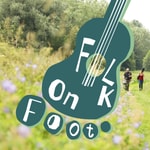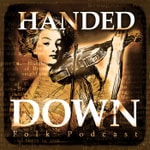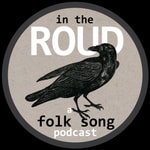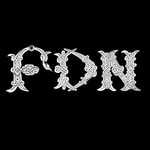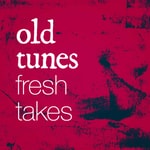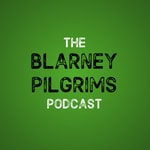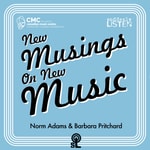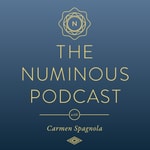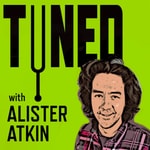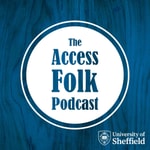The Old Songs Podcast – Details, episodes & analysis
Podcast details
Technical and general information from the podcast's RSS feed.
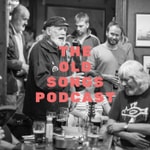
The Old Songs Podcast
The Old Songs Podcast
Frequency: 1 episode/40d. Total Eps: 23

Recent rankings
Latest chart positions across Apple Podcasts and Spotify rankings.
Apple Podcasts
🇬🇧 Great Britain - musicInterviews
26/07/2025#93🇬🇧 Great Britain - musicInterviews
25/07/2025#56🇬🇧 Great Britain - musicInterviews
24/07/2025#27🇬🇧 Great Britain - musicInterviews
23/07/2025#81🇬🇧 Great Britain - musicInterviews
22/07/2025#38🇬🇧 Great Britain - musicInterviews
19/07/2025#66🇬🇧 Great Britain - musicInterviews
16/07/2025#74🇬🇧 Great Britain - musicInterviews
15/07/2025#42🇬🇧 Great Britain - musicInterviews
11/07/2025#80🇬🇧 Great Britain - musicInterviews
10/07/2025#45
Spotify
No recent rankings available
Shared links between episodes and podcasts
Links found in episode descriptions and other podcasts that share them.
See all- https://amzn.to/2xsJvYa
1 share
- https://amzn.to/3fTvZ0Y
1 share
- https://amzn.to/3yyfjH9
1 share
RSS feed quality and score
Technical evaluation of the podcast's RSS feed quality and structure.
See allScore global : 52%
Publication history
Monthly episode publishing history over the past years.
The Old Songs Podcast: Se2Ep10 – ‘The Bury New Loom', ft. Jennifer Reid
Season 2 · Episode 10
mercredi 2 août 2023 • Duration 45:17
Today, I'm talking to broadside ballads singer, Jennifer Reid. Although Jenn has been involved in researching and singing these songs for a decade, I'm ashamed to say that she only turned up on my radar when she appeared as the ballad-singing bar owner, Barb, in the recent BBC adaptation of The Gallows Pole. I've since discovered that she's a force to be reckoned with - one of the most passionate proponents of old songs that I've so far had the good fortune to meet. In this conversation, we discuss her background with broadsides, their history, what a ballad hawker might have been, who might have been singing these songs and why, and how Jenn ended up singing unaccompanied traditional songs to a Pulp audience at the behest of Jarvis cocker. Along the way, we chat a little about one of her favourite ballads, 'The Bury New Loom' [Roud V9197]. Pull your ear goggles on and let's get underway.
The Old Songs Podcast: Se2Ep9 – ‘Lord Douglas’, ft. Jim Moray
Season 2 · Episode 9
jeudi 8 juin 2023 • Duration 01:14:28
It’s been a while, hasn’t it? But, like buses, you wait ages for an Old Songs Podcast episode and then two come along in quick succession. Because this edition is the first in a two-part thing. Today, we’re chatting to Jim Moray about passing the two-decade mark as a professional musician, about one of my favourite of his traditional arrangements, the ballad 'Lord Douglas' [Roud 23], about a new album coming soon, and about an upcoming festival in his name. The second part to this podcast is going to be recorded live, in front of an audience - possibly even you, dear listener - at the Jim Moray festival on Jun 17th at Cecil Sharp House in Camden, North London, where we’ll be joined by Jim, Nick Hart and a number of other guests. I’ll stick the tickets link on the page accompanying this episode.
We’re focusing this episode loosely around the song, 'Lord Douglas', which Jim originally released 10 years ago, winning Best Traditional Track at the BBC Radio 2 Folk Awards in the process. We’re also using it as an opportunity to talk to Jim about his career so far. Listen out for tales about the time Amy Winehouse mistook him for a photographer’s assistant, his relationship with folk music and gadgetry, and his theories on how arranging traditional ballads is like writing a week’s worth of Eastenders.
And, as an extra special treat, listen out for the final track in the podcast - usually an unaccompanied ballad, but this time an exclusive - a recording of 'Lord Douglas' from the Abbey Road sessions that make up his new album.
Once again, our thanks to the English Folk Dance and Song Society for their ongoing support, and we hope to see some of you at JimFest on June 17th.
Tickets for the Jim Moray Festival are available now from this link.
The Old Songs Podcast is supported by the English Folk Dance and Song Society.
‘Lord Douglas’ podcast notes
This article is accompanied by a partial transcript of the sections that discuss Jim’s career. You can find that in our Jim Moray interview.
Links
Track listing
- ‘Lord Douglas’, Jim Moray, taken from the album Skulk (2012)
- ‘Lucy Wan’, Frankie Archer, taken from the single Lucy Wan (2022)
- ‘Earl Brand’, Gigspanner, taken from the album Natural Invention (2020)
- ‘The Douglas Tragedy’, Ewan MacColl, taken from the album The English & Scottish Popular Ballads (The Child Ballads) Vol.5 (1956)
- ‘Lord Douglas’, Moonaroon, taken from the EP Seeds<
Ep13: The Old Songs Podcast - 'The Cruel Mother' ft. Rosie Hood
Season 1 · Episode 13
mercredi 6 avril 2022 • Duration 01:32:07
The voice you hear at the beginning of this episode is the voice of the late, great traditional singer, Cecilia Costello, one of Birmingham’s finest, explaining how her father would present this week’s song back in her childhood in Victorian England. ‘The Cruel Mother’ is a huge song, and even that’s an understatement, but it’s also a song that really underlines exactly how an old song can remain relevant to a modern audience.
It’s one of my favourite songs, so I was delighted when my guest, Rosie Hood, chose it as her subject song for this episode. We had a really amazing conversation, taking in one of the darker songs in the traditional cannon, its origins and the various interpretations that it has been given, not to mention the sense of responsibility that one feels as a performer taking it on.
Rosie Hood was one of the first singers I got to know when I became interested in traditional music. Born in Wiltshire, she has been singing folk songs since her childhood, and continued singing them through her university days in Glasgow. She now lives in Sheffield where she sung, until very recently, with the Dovetail Trio. Her solo album, The Beautiful and the Actual, is one of my favourites of the last few years, featuring a beautiful duet of ‘The Cruel Mother’, sung with Emily Portman.
It’s a peculiar twist of fate that this song has cropped up on our schedule around Halloween, and while the song is undoubtedly dark and eerie, it’s also incredibly poignant and unbelievably sad. I hope our conversation does not come across as too flippant. It’s a hefty tale we’re here to tell, and we wanted very much to do it justice.
During the conversation, we look at how these old songs can inspire new responses and interpretations, specifically through gorgeous music by one of the aforementioned Emily Portman, one of my favourite songwriters. Rosie also talks about the difference between covering a modern song and interpreting a folk song, and why a song might come and stay with you for a while before going and living with someone else.
As we’ve already heard, we explore the background of one of the song’s source singers, Cecelia Costello, but also the collecting work of Alfred Williams of the Upper Thames region. I knew very little about him before meeting Rosie. If you’ve never heard of a folk singing competition in which a singer might for 16 hours straight, then this is the podcast for you.
In short, to use the wrong word, this is a long episode. You may want to split it into two. However you approach it, I hope it touches you on some level, as I hope all of the episodes from this first series have done. This is the last episode I’ll be recording for a while, but it has been an absolute pleasure chatting to the singers who have taken part, and a real delight introducing these songs to old-songs listeners old and new.
Ep12: The Old Songs Podcast - 'Banks of Green Willow' ft. Cohen Braithwaite-Kilcoyne
Season 1 · Episode 12
mardi 29 mars 2022 • Duration 01:08:10
Episode 12 of The Old Songs Podcast opens with the earliest known recording of this week’s Old Song, The Banks of Green Willow [Roud 172]. It’s the sound of David Clements, singing in either 1906 or 1909 – we’ll come to that later – recorded on wax cylinder by either Charles Gamblin and George Gardiner, or the legendary composer, Ralph Vaughan Williams at Basingstoke Workhouse. The origins of the recording are fittingly obscure, given that the origins of the song itself throw up plenty of similar confusion.
Banks of Green Willow was chosen by this week’s guest, Cohen Braithwaite-Kilcoyne, who – if you stick around to the end of the podcast – also gives us his very own unaccompanied rendition. I won’t say too much about Cohen or the song, as he does a fine job of introducing both over the course of the hour-long episode. Suffice it to say that his solo album, Outway Songster, was a permanent fixture in my earphones about three years ago, and I’ve since taken the opportunity to see him at whichever festival we’ve both turned up at. He’s an amazing musician, and he’s long had the tradfolk bug as badly as the rest of us.
It’s an extraordinary song that leads us off down multiple rabbit holes, so make sure you’re sitting comfortably.
This episode features recordings of Banks of Green Willow by Jackie Oates, Granny’s Attic, Tony Rose, London Philharmonic Orchestra, Fred Jordan (Watery Grave).
Check out his work with Granny’s Attic, and look out for his forthcoming second solo album, as well as the book he mentioned here, Southern Songster. The next episode, all being well, will feature Rosie Hood discussing the huge ballad, The Cruel Mother, so listen out for that.
Ep11: The Old Songs Podcast - 'Lord Gregory' ft. Burd Ellen
Season 1 · Episode 11
mardi 22 mars 2022 • Duration 01:19:57
In the last episode, number 10, we chatted with Jim Moray, so I thought for a bit of consistency I’d use his version of this episode’s song to kick us off. That’s off his album The Outlander, and that’s the wonderful Josienne Clarke – who we must get on this podcast one day – singing with him.
So, the song is Lord Gregory, and my guest this week is Debbie Armour, one half of the Scottish drone folk outfit, Burd Ellen. There’s a reason why I’ve not kicked off this episode with her version, and you’ll see why if you keep listening. Quite simply, it’s epic, and really deserves some time and space of its own. You’ll see.
Of course, Lord Gregory has its numbers. Roud 49 (we’ve spoken a lot about what a Roud number is in previous episodes), and Child 76. Possibly. I’ll let Debbie explain. Better that way.
We’ve spoken about Child a lot in the past, too, but this time we also bring up Bertrand Harris Bronson. If you’re not sure who he was, his chief role in traditional music was in collecting together all the tunes he could find to accompany the texts that Child had published. The book you want to go and find is called The Traditional Tunes of the Child Ballads, which was published in four volumes between 1959 and 1972.
So, Debbie chose to chat about Lord Gregory (or The Lass of Roch Royal, or Annie of Lochroyan, or the Maid of Ochram, or perhaps even Who’s Going to Shoe Your Pretty Little Foot – so many titles) for a whole bunch of reasons, which will soon be revealed. One thing I’ll say first, though: it’s rare to meet someone who has clearly spent so much time and energy thinking about a ballad as Debbie has with this one. It was a real privilege to hear what she had to say, and to basically sit on the sidelines as she held forth. What a great way to spend a Sunday morning.
So get yourself very comfortable and open your mind to the wonders of this amazing song. You’ll learn about Bess Cronin, free-form singing, the Rule Of Three, and why Debbie thinks a traditional ballad is like a round of golf.
Oh, and there’s stronger language in this episode than usual, not because Debbie brings out the foul mouth in me, but because Lord Gregory deserves a real tongue lashing. And that’s what he gets.
Ep10: The Old Songs Podcast - 'The Leaving of Liverpool' ft. Jim Moray
Season 1 · Episode 10
mercredi 16 mars 2022 • Duration 01:30:58
OK then. This one’s an epic. In this episode, Jim Moray and Jon Wilks discuss the traditional song, “The Leaving Of Liverpool” [Roud 9435], where it came from, and the fascinating journey it went on to become one of the best-known songs in the cannon.
Along the way they touch on the history of sea shanties, the idea that songs can have a nationality, the concept of “composition in performance”, how ballad singers remember all the words, how traditional songs can alter even while in one person’s repertoire, the importance of the singer to the song, how a singer works as an editor for traditional songs, and why Jim is drawn to compare this song to “Don’t Look Back in Anger”. Phew!
This week’s Old Songs Podcast is waterlogged with nostalgia. Roud number 9435 is better known as “The Leaving Of Liverpool”, and it’s one of those folk songs that have, at various points in its history, managed to weigh anchor and ship into a larger consciousness. The story behind this song of longing and homesickness is a journey in itself – full of twists and turns – made all the more fascinating by the fact that it was only ever collected twice, both times within the same harbour. And yet it’s a song that has been sung by many thousands of people across the English-speaking world.
Unusually for the Old Songs Podcast, this is a song I chose to speak about, rather than asking an interviewee singer to choose it. And I knew exactly who I wanted to chat to about it. As we’re about to hear, it’s a song that was once ubiquitous, but seems to have been somewhat neglected in recent years, perhaps until Jim Moray recorded a version on his 2019 album, The Outlander. When Jim came to the Whitchurch Folk Club and performed ‘The Leaving Of Liverpool’ in October last year, there wasn’t a dry eye in the house, and it has been stuck in my head ever since.
Perhaps it’s because the world feels so off-kilter these days that I wanted to get stuck into a song that tugs and the heartstrings and almost weighs you down with yearning. Whatever the reasons, it was a delight to chat to Jim about this gorgeous piece of music and perhaps reintroduce it to the listeners of The Old Songs Podcast once again.
So, batten down the hatches and hoist the mainsail. We’re heading for the wide ocean.
Ep9: The Old Songs Podcast – 'Myn Mair' ft. Cynefin
Season 1 · Episode 9
mercredi 9 mars 2022 • Duration 01:11:32
“Every song needs an address.” So quotes Owen Shiers of Cynefin later on this in podcast – a sentence, I think, that sums up so much of what The Old Songs Podcast is all about.
I lived for several years in North Wales, and perhaps I was too young and too busy being a young person to develop any serious interest in Welsh culture – something I’ve regretted as I’ve got older – but I’ve realised in recent years that I was there long enough to develop an ear for the language, much as you might do with a kind of music. I can’t pretend to understand it, and I certainly wouldn’t do it the disservice of saying I can speak or even pronounce any of it, but I adore Welsh music largely for the chance to bask in the sound of the language.
When I started the Old Songs Podcast, I knew very quickly that I wanted to find someone who could come and talk in depth and with passion and enthusiasm about Welsh traditional songs. When a Twitter friend of mine, Rob Kingsbury-Barker, recommended Cynefin earlier this year, I dropped the artist, Owen Shiers, a line to find out more. Very quickly I realised I’d found that person.
Cynefin’s album, Dilyn Afon, is a sumptuous, gorgeous collection of songs, collected from Owen’s home region, Ceredigion. It’s the musical summation of a journey, both personal and physical, of a young man trying to put his finger on where he comes from and what it means to be from that neck of the woods.
It’s an album well worth ordering (here’s the link), and also a great leaping-off-point for an all-too-brief exploration of traditional Welsh music. In this episode, we’ve loosely based the conversation around the song, Myn Mair, but it’s as much about trying to poke our way around the edges of what is clearly a huge genre in its own right.
I should point out that the opening track you’ll hear to is not Owen Shiers and Cynefin, but a version of our subject song, Myn Mair, as performed by Lleuwen, recommended to me by Owen. I wanted to show you that just so you can really start to see what is possible with these old songs – the raw material that they represent, from which so much can be done. Later on we’ll hear Owen’s own piano version, plus versions from 9-Bach and even a church choir.
Ep8: The Old Songs Podcast – ‘Hal-An-Tow’ ft. Lisa Knapp
Season 1 · Episode 8
mardi 1 mars 2022 • Duration 01:12:43
I’m writing this intro at 11:45pm on April 30th, desperate to get the podcast done in time for the very start of May. Why? You’ll see why over the next hour or so. In the traditional calendar, no month quite rivals this one.
From the perspective of traditional song, it’s also the calendric home of one of my favourites. ‘Hal-An-Tow’, or Roud 1520 to give it its official numbers, is one of those songs that everyone involved in the traditional folk scene will know, but seems inexplicably unknown to the rest of the population. Why that is, it’s hard to explain, but this episode seemed like a great opportunity to help further its popularity.
And who better to chat about it with than Lisa Knapp, one of my very favourite singers of any genre. Lisa’s 2017 album, Till April is Dead – A Garland Of May is something of a masterpiece – an extraordinary concept album that built on a huge amount of research that Lisa did into the subject of May and May traditions.
There’s so much here to be getting stuck into – we’re discussing ‘Hal-An-Tow’, how Lisa made her album, and some of the incredible May traditions that exist in the UK. So we happily overran the usual hour or so that these podcasts last. Welcoming in the May, then, please get comfy and join me in welcoming Lisa Knapp to the Old Songs Podcast.
Ep7: The Old Songs Podcast – ‘Dives and Lazarus’ ft. Nick Hart
Season 1 · Episode 7
mercredi 23 février 2022 • Duration 01:02:51
‘Dives and Lazarus’ may seem like an odd song to look at in early April, given that it’s commonly thought of as a carol. But that’s the nature of The Old Songs Podcast. If the guest wants to discuss Christmas carols in April, then who am I to question their motives?
It’s another unusual episode, recorded in the confines of coronavirus lockdown. My guest today is one of my favourite natterers – a man who could talk the folkie legs off Martin Carthy’s donkey, and also one of the chaps who helped me come up with the concept for this podcast. You heard him on the very first episode, in fact. It’s Nick Hart, broadcasting to you from what sounds like the rather rapid descent into utter madness. We’ll get on to that shortly.
What’s lovely about ‘Dives and Lazarus’, or Roud 477 to give it its official number, is that it also gives us the chance to explore how these old traditional songs influenced a generation of classical composers, not least Ralph Vaughan Williams. And that’s not somewhere I think we’ve been before.
So, without further ado, let’s get stuck in by opening a window onto the technical difficulties involved in recording a podcast in two different regions while under lockdown, not to mention the subtle art of synchronised clapping. You’ll see what I mean.
Ep6: The Old Songs Podcast – ‘Hard Times of Old England’ ft. Billy Bragg
Season 1 · Episode 6
vendredi 12 novembre 2021 • Duration 55:20
An Old Songs episode for these hard times, and one featuring a legend I’ve long admired: Mr Billy Bragg.
I had been meaning to record something on “Hard Times Of Old England” for some time, but hadn’t had the time or contacts to do it justice. The coronavirus situation offered me time in abundance, and it just so happened that my ideal interviewee had some time spare, too.
‘Hard Times of Old England’ was a very important song to me as it was a real gateway into traditional music. For a song with so few entries into the VWML archive, it has had a huge reach in terms of artists who have recorded it. Take a look at its page on Mainly Norfolk for a full discography.
Hopefully, this’ll give you something interesting to do for an hour, whether you’re self-isolating or just plain bored. Let’s hope that these hard times will not last for long.
What you’ll hear in this podcast
Other than the interview you’ll hear with Billy Bragg, you’ll also hear recordings by:
- Stick In The Wheel (and I also mention a previous interview with them, which you can find here)
- Ron Copper (in the podcast, I refer to this recording being by Ron, while Billy Bragg refers to it as a Bob Copper recording. The confusion comes from the fact that the same recording has been published under different names in different places
- The Imagined Village
- Jerry Bryant and Starboard Mess, singing ‘Roast Beef of Old England‘
- The Young Coppers’ recording of ‘Hard Times of Old England‘
- The Copper Family. Hit up their website here.
- “The Tradesman’s Complaint“
